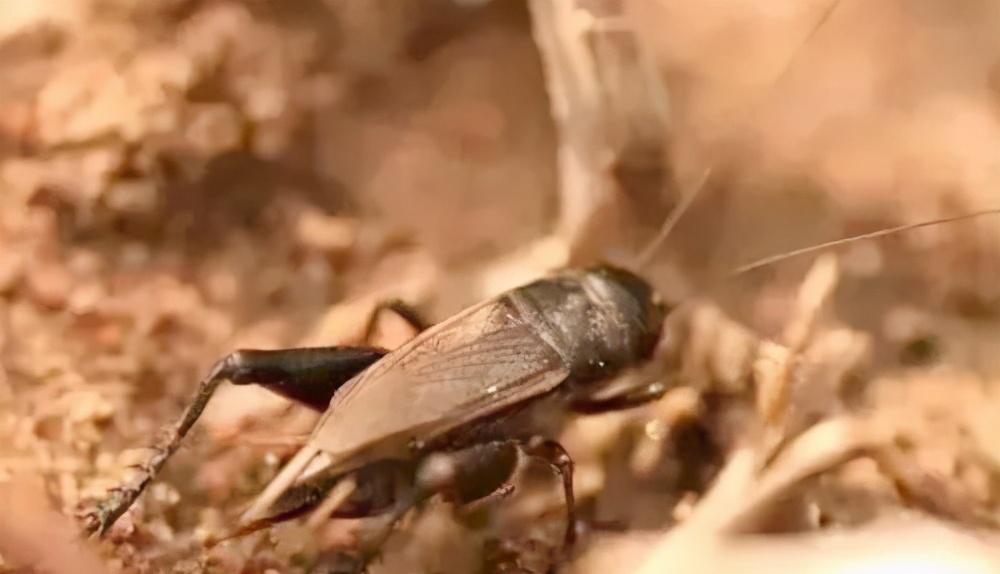The sound of the oil gourd is gentle and melodious, and it is praised by many players as the "first songbird". Everyone wants the oil gourd to be loud and loud, and the key to this is scientific and reasonable feeding, on the one hand, the food fed should be in line with its original nature, and the difference between artificial breeding and pure wild must be taken into account.

Wild oil gourd mainly feeds on the roots, stems and leaves of crops, and occasionally eats some meat foods such as aphids and small meat worms, so artificial feeding still needs to be vegetarian-based, millet, corn, carrots, cabbage leaves, etc. are good food. Specifically, millet can be soaked and mixed with corn ballast to form a puree, and a piece of carrot can be added appropriately. Since the digestion ability of artificially bred oil gourds is not as good as that of wild ones, it is also necessary to feed some cooked food, and small rice, steamed pumpkin, and boiled carrots are all good choices. But do not feed cooked food for a long time, there are player feedback on the Internet, long-term feeding cooked food oil gourd has a short life and a weak call. In addition, players do not recommend mixing several or even a dozen kinds of grains together as food, because the grains are "miscellaneous and sick".
After talking about vegetarian food, let's talk about meat food. Wild oil gourd predation ability is not strong, "eating meat" is extremely occasional, the natural body's metabolic capacity for meat protein is not high. If meat is fed for a long time, especially synthetic meat foods such as silkworm pupae powder and grasshopper powder, it will cause the oil gourd to grow fat, grow old, and lose shape. However, in order for the oil gourd to be vigorous, the sound is loud, protein is essential, and beans rich in plant protein are a good choice, especially fresh peas, which are mixed with millet and corn ballast in a 30:1 ratio and smashed into puree, and fed twice a week. Canned dried peas are used sparingly, and the additives inside can harm the health of the worms. In addition to peas, mung beans and red beans can also be fed raw, but edamame is poisonous when eaten raw and must be cooked and fed.
In particular, the oil gourd also needs to "eat meat" after the large sheath like the grasshopper. During the period when it metamorphosed into an adult but had not yet begun to call, the oil gourd was weak and lacked nutrients, and needed to be fed enough meat to make its constitution stronger. Some players use the practice of "raising insects with insects", considering that the oil gourd is a yin insect cold, the shell under the cicada that is also a native insect is soaked and fed to the oil gourd; feed it for two to three days with this method, change it to a boiled earthworm or a pygmy shrimp, and feed it for three to five days in the amount of rice grains per day. Bread worms, crab legs, try not to feed, because bread worms have a lot of fat, oil gourds are easy to grow fat and catch fire after eating, while crab legs are costly, and there may be drug residues if they are artificially farmed.
Finally, talk about water. Water not only maintains the vital signs of the oil gourd, but the minerals contained in it are also important elements to keep it strong. As the saying goes, "one side feeds the other", and the same is true of insects. On this point, the players of dou moth will feel deeper, why is the production of moth in Ningyang, Shandong "able to fight a good war"? It is because Ningyang is located in a calcareous cinnamon soil area with high mineral content. These minerals are dissolved in water, or are directly drunk by the clams, or absorbed by the plant and eaten by the clams, making the shell hard and strong. Therefore, it is best to feed the oil gourd to drink boiled water, one is to boil in addition to chlorine, and the other is to retain minerals. This is more suitable for oil gourd drinking than pure water or bottled water.